Netflix - Asterix & Obelix’s Big Fight : More Than Magic Potion: The Heart and Humor
By Mulder, 24 april 2025
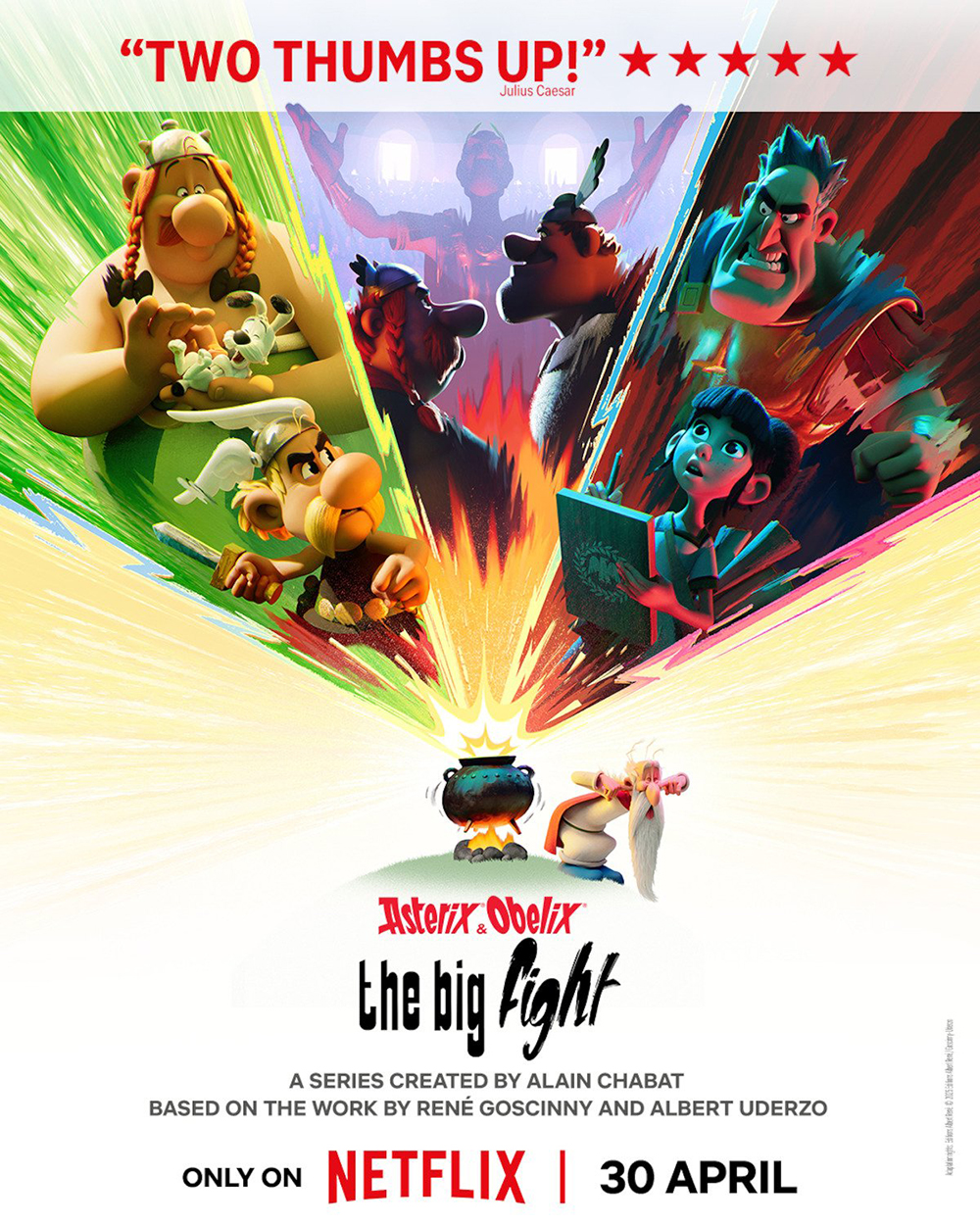
When Netflix announced a new adaptation of Asterix & Obelix: The Big Fight, directed by Alain Chabat and Fabrice Joubert, expectations were understandably sky-high. After all, Alain Chabat’s 2002 film Mission Cleopatra remains not just a beloved classic, but arguably the gold standard for bringing Albert Goscinny and Rene Uderzo’s legendary comics to life. In a time where animated series often feel rushed or soulless, The Big Fight arrives like a blast of fresh air: vibrant, thoughtful, hilarious, and crafted with unmistakable affection. Watching the series unfold, we quickly realized that this is not merely a retelling or a safe homage; it is a bold and sincere celebration, a work that dares to honor the source material while speaking eloquently to today’s audiences. Over five carefully structured episodes, Chabat and his team remind us why these indomitable Gauls continue to captivate, generation after generation.
What strikes us first is the sheer visual splendor of the series. Under the guidance of Kristoff Serrand, known for his work on How to Train Your Dragon, the animation embraces a lush, tactile aesthetic that feels both timeless and immediate. The world of the Gauls, with its sun-drenched forests, bustling village squares, and meticulously rendered Roman camps, bursts to life with breathtaking detail. Unlike the sterile glossiness that plagues much modern CGI, The Big Fight leans into a painterly, textured style, filled with vibrant colors and rich lighting. The playful use of comic-book elements—onomatopoeias that pop across the screen, stylized visual distortions during moments of magic or chaos—reminds us of the Spider-Verse innovations, but used here with a lighter, more organic touch. Every frame feels alive, humming with the spirit of Uderzo’s illustrations yet unmistakably elevated for a new era of animation.

From a narrative perspective, the series masterfully balances fidelity and invention. While the central plotline remains rooted in the classic 1966 album Le Combat des Chefs—the battle between village chiefs, Panoramix’s critical memory loss, and the looming Roman threat—Alain Chabat and his co-writers Benoît Oullion and Pierre-Alain Bloch (aka Piano) wisely expand the story’s emotional and thematic range. They introduce new characters like Metadata, whose clever modernization of Roman bureaucracy provides both narrative drive and biting satire of contemporary culture. Meanwhile, flashbacks delve deeper into Obelix’s childhood and his fateful fall into the magic potion cauldron, a running gag from the comics finally explored with heartwarming—and surprisingly poignant—depth. These additions never feel forced; rather, they enrich the tapestry of Asterix’s world, offering fresh entry points for newcomers without alienating longtime fans who know every in-joke by heart.
Perhaps one of the series' most delightful achievements lies in its humor. Alain Chabat’s unmistakable comedic voice shines through at every turn. The punchlines are sharp, but never cynical; the references, though contemporary, never jar us out of the carefully constructed ancient world. Instead, the jokes weave themselves seamlessly into the fabric of the story, often offering sly winks at modern absurdities, whether it’s the narcissism of influencers, the bureaucratic nightmare of administrative systems, or the petty politics of empire-building. We particularly enjoyed how the series often lets its characters playfully acknowledge the silliness of their own traditions, a light metatextual touch that feels both respectful and knowing. It’s humor that rewards attentiveness, inviting us to rewatch and rediscover hidden gags tucked into background details or tossed off in rapid-fire dialogue.
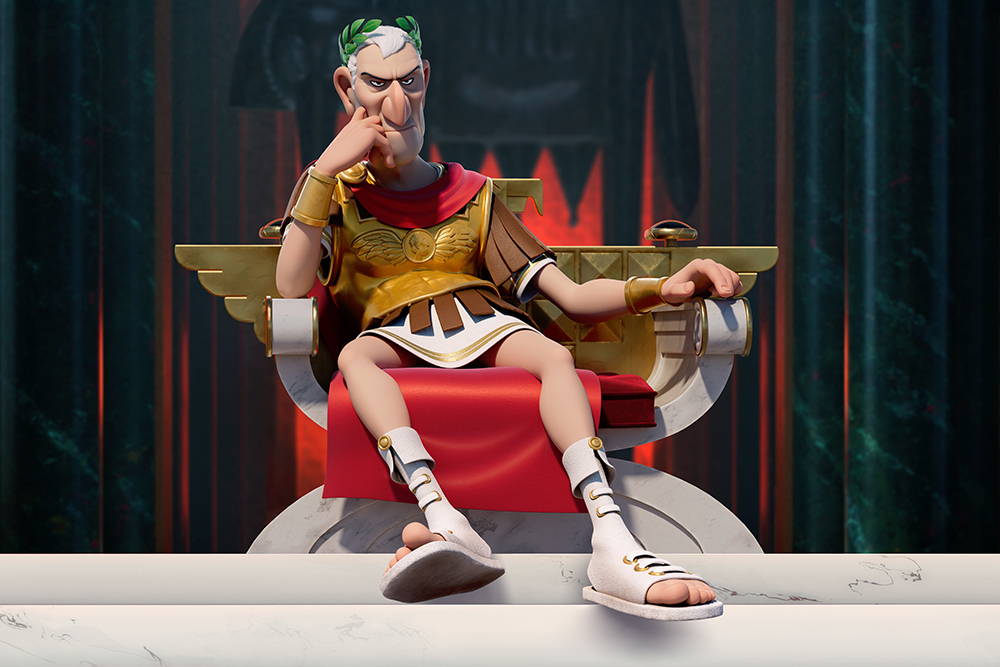
The performances across the voice cast are consistently superb. Alain Chabat brings a wry gravitas to Asterix, a perfect counterbalance to Gilles Lellouche’s wonderfully exuberant Obelix. Thierry Lhermitte imbues Panoramix with a manic energy following his bout of amnesia, providing some of the series' most inspired comedic moments. Special mention must go to Jean-Pascal Zadi, whose portrayal of the hapless Roman centurion Potus injects a charming, chaotic spirit into every scene he inhabits. What truly sets the voice work apart is the naturalism it brings—none of the characters sound exaggerated or cartoonish. Instead, they feel like real people caught up in ridiculous situations, grounding the fantastical elements of the story with an unexpected emotional authenticity that deepens our investment in their fates.
Beyond its laughs and visual fireworks, The Big Fight also offers surprisingly thoughtful thematic explorations. In portraying the Gauls' battle not merely against Roman oppression, but against the loss of memory, tradition, and community, the series taps into deeper veins of meaning. The notion that strength lies not in brute force, but in cleverness, solidarity, and resilience, feels particularly resonant today. In subtle but poignant ways, the show asks: what happens when the well of tradition we draw strength from runs dry? How do we navigate change without losing our identity? These questions are never posed didactically, but they linger beneath the surface, adding layers of meaning to what could otherwise be simple slapstick.
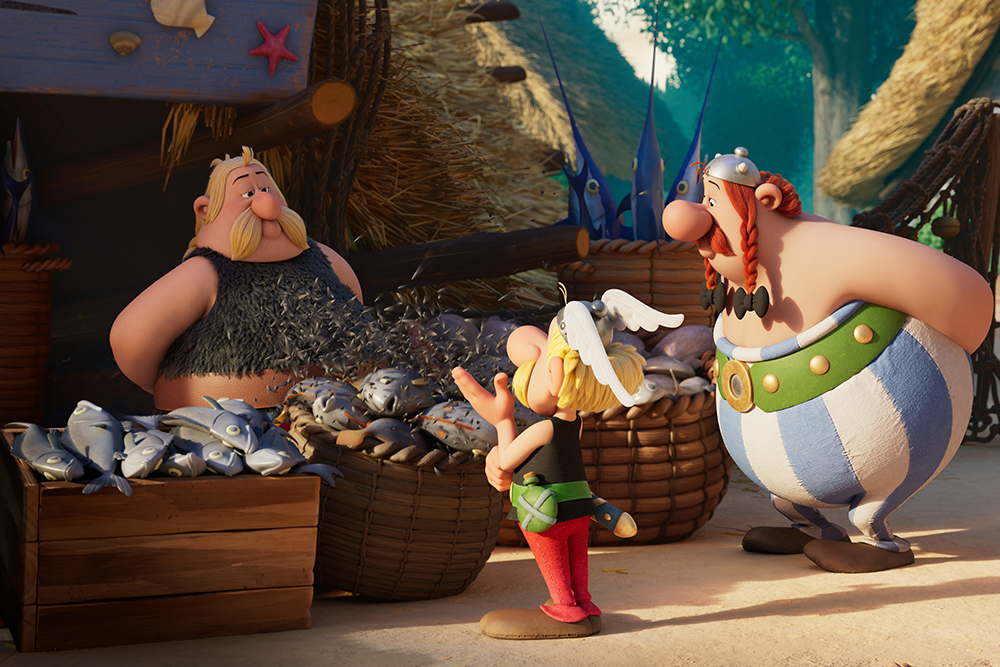
Of course, the series is not entirely without its imperfections. A few mid-season diversions—particularly an extended flashback sequence—drag slightly, and while generally charming, some contemporary references might date faster than the more timeless humor of the original albums. Nonetheless, these minor quibbles pale against the overwhelming strengths of the production. Even when it stumbles, The Big Fight stumbles with heart and ambition, never with cynicism or laziness. We appreciated that even the risks that didn’t fully land stemmed from a genuine creative drive rather than from a fear of alienating audiences.
The technical polish of the series deserves yet another round of applause. Whether it’s the careful animation of background villagers engaging in tiny, unscripted activities or the clever use of lighting to evoke mood shifts, the attention to detail is astonishing. The musical score by Mathieu Alvado enhances the storytelling beautifully, blending rousing, adventurous motifs with tender, emotional undertones that underscore critical moments without overwhelming them. In scenes like the bustling fairground finale, where slapstick chaos unfolds against a tapestry of color and sound, we were simply dazzled by how effortlessly the series marries its audio-visual elements into a cohesive, exhilarating whole.
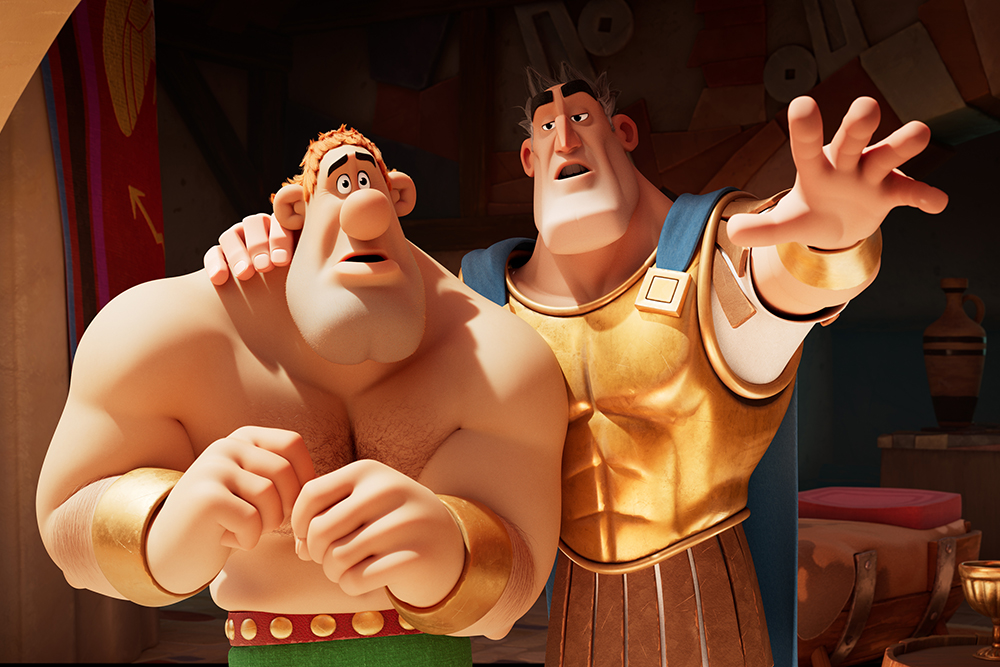
As the final credits rolled, accompanied by a delightful postscript in the form of a 2D animated short by Xilam, we found ourselves overcome with the same bittersweet feeling we experience after closing a beloved Asterix album: a profound sense of joy, tinged with the wish that the adventure could continue just a little longer. It is no exaggeration to say that Asterix & Obelix: The Big Fight is one of the most successful and sincere adaptations of Goscinny and Uderzo’s world to date. It reminds us that while times may change, while empires may rise and fall, some things—like friendship, courage, and the capacity for laughter—remain as vital and indestructible as ever.
With The Big Fight, Alain Chabat proves once again that he is not simply revisiting past glories but continuing a living tradition. In doing so, he secures his place alongside the original masters of Asterix lore, crafting a series that feels both timeless and utterly of its time. Whether we watched as longtime fans, remembering the first time we laughed at Obelix’s antics, or as new adventurers discovering the magic of this tiny village for the first time, one thing is clear: this Big Fight was well worth the wait—and left us ready, once again, to shout with all our hearts: By Toutatis!.
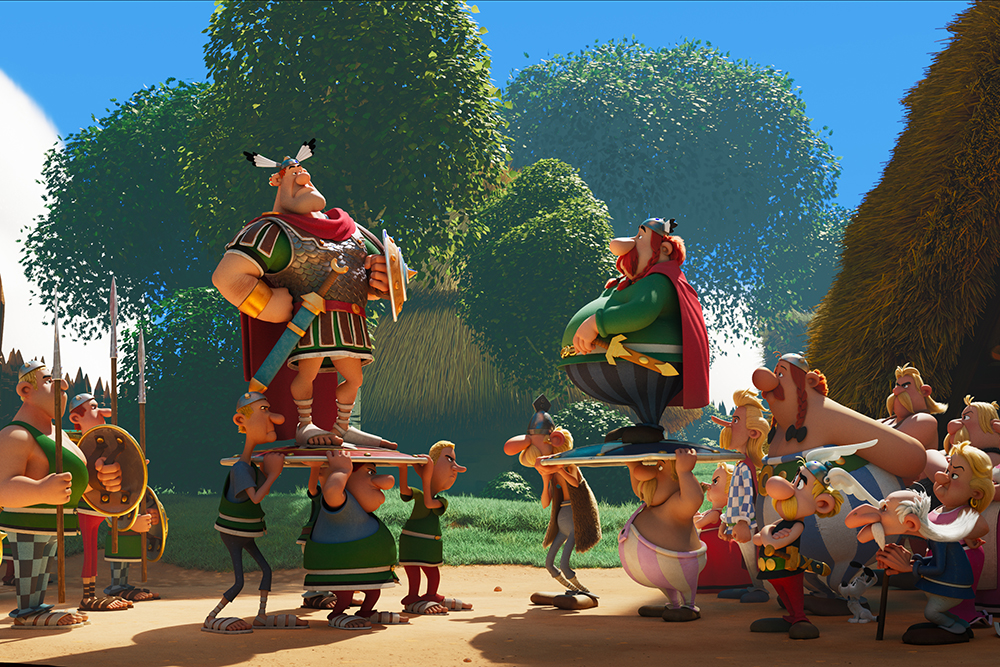
Synopsis :
The last independent village in Gaul, home of Asterix and Obelix, owes its superiority over the Romans to a magic potion, but when the druid who makes their potion loses his memory, the villagers are left to fend for themselves against the might of Rome. More than 20 years after his triumphant live-action adaptation of Mission Cleopatra, Alain Chabat returns to his love of Asterix with this highly anticipated animated series produced by Alain Goldman.
Asterix & Obelix’s Big Fight
Directed by Alain Chabat, Fabrice Joubert
Produced by Alain Goldman
Written by Alain Chabat, Benoît Oullion, Pierre-Alain Bloch (alias Piano)
From René Goscinny and Albert Uderzo’s Asterix & Obelix’s Big Fight comic book
Starring Alain Chabat, Gilles Lellouche, Anaïs Demoustier, Laurent Lafitte, Thierry Lhermitte, Géraldine Nakache, Jean-Pascal Zadi, Grégoire Ludig , Alexandre Astier, David Marsais, Jérôme Commandeur, Fred Testot, Jeanne Balibar, Grégory Gadebois
Music by Mathieu Alvado
Edited by Florent Colignon
Production companies : Les Éditions Albert René, Légende Films
Distributed by Netflix
Release date : April 30 2025 (United States, France)
Running time : 150 minutes
Rating: 9/10 — By Toutatis, this is exactly the big fight we hoped for, and more.
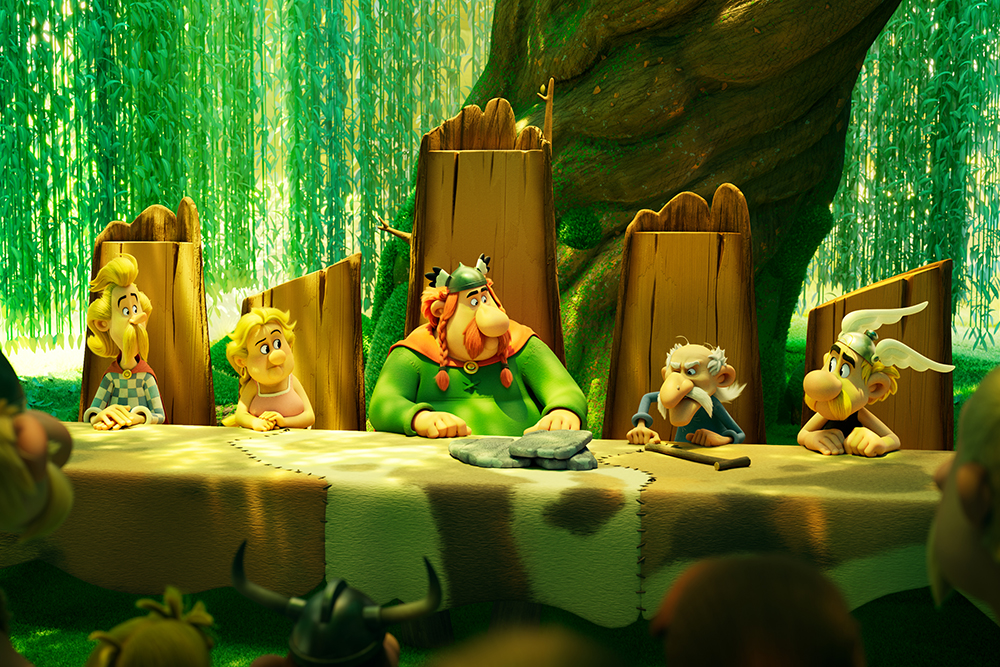
Photos : Copyright Netflix

